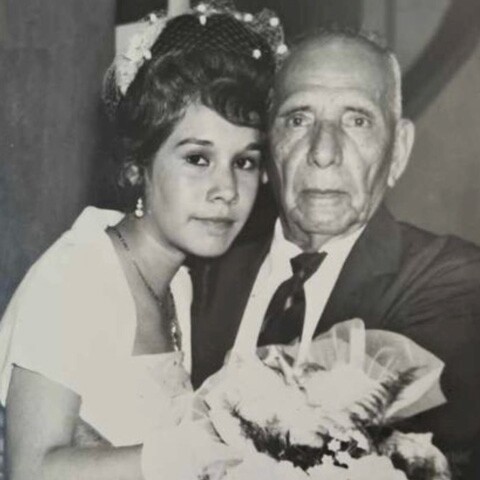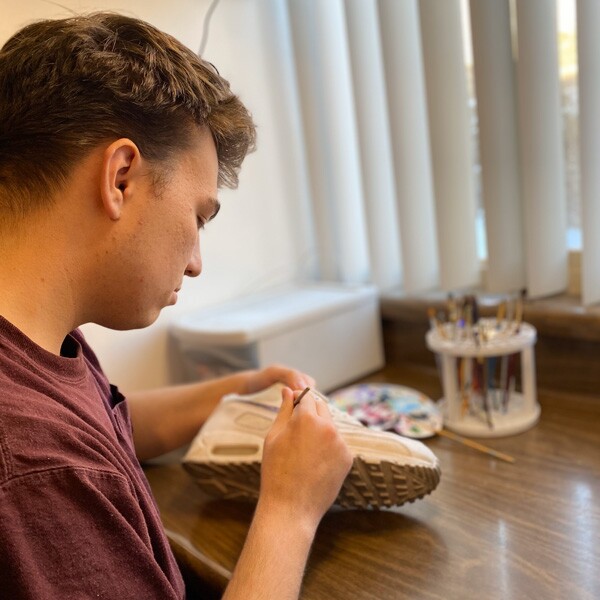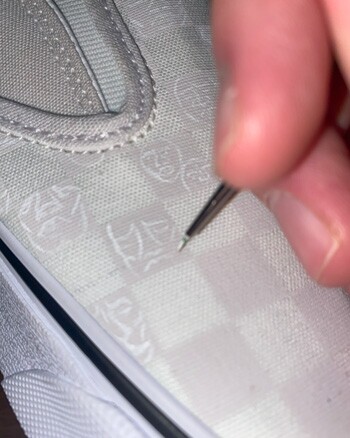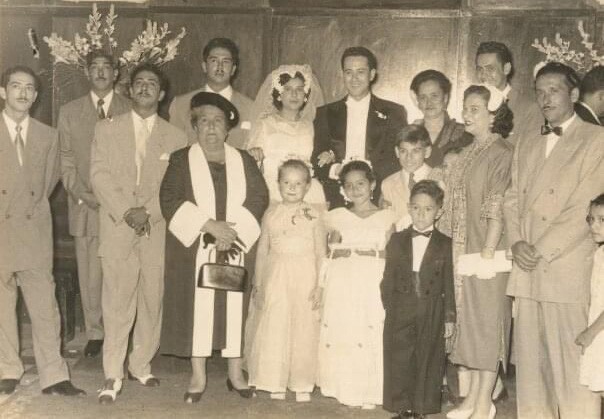In the early 1900s, a very young boy in Mexico was without his father. His mother couldn’t provide support, so he ventured out on his own at a tender age. This sounds like the opening lines of a tragic tale, but the opposite is true. The child’s life became a story of love, support, and lasting inspiration for his descendants today.
Ricardo León Coronado, that young homeless Mexican boy’s great grandson, shared his family’s story and the power of family names at the Treehouse Talks hosted recently at the FamilySearch Library. It was organized by FamilySearch employee Mary Hallman and Salt Lake City Treehouse Talks team leader Parker Mitchell. Hallman asked 3 young adults to share inspiring family stories. Ricardo, Carter Denos, and Natalia Soto Cerna shared stories showing the power of connecting with names, ancestry, and family.

Ricardo León Coronado
Ricardo’s great-grandfather, Serapio León, the homeless Mexican child, took various jobs to earn enough money to eat. Then he met Carlos León, a candy maker from Spain, who allowed him to work at his candy shop for a day in exchange for food. The candy maker took a liking to Serapio and took him in. Carlos and Serapio developed a strong relationship, like father and son, and Carlos taught Serapio the craft of candy making.

Serapio didn’t want to be a burden to his mentor, so when he grew up, he set out on his own and started his own candy business, using the skills that he had learned. He had come to love Carlos as a father—so much so that he took Carlos’s surname, León, and named a son after him.
In his Treehouse Talk, Ricardo explained how the story of Carlos’s kindness, encouragement, and love when he took in and mentored a lost young man, raising him to a stalwart adult, still resonates with his family today. They are honored to bear the León surname. Ricardo explained that in Mexico, children traditionally receive their father’s surname, followed by their mother’s surname—hence Ricardo’s surname is León Coronado.
There is power in family names, he concluded.

Carter Denos
Carter Denos found it easy to accept Mary Hallman’s invitation to present at the FamilySearch Library, since he was always interested in history and family history, and even did an internship for FamilySearch.
“I love talking about myself,” he also joked.
“My last name is Denos (pronounced Den Hos’). In its original Dutch, the name was spelled “den Os” but was Americanized when the family immigrated.
Carter loves the Dutch language, the Dutch culture and being of Dutch descent (through his father’s line). That heritage is a prominent part of his life. Although his family today speaks English primarily, they always sing “Happy Birthday” in Dutch.
Carter’s paternal grandmother (his father’s mother) loved kids and people. “There was always someone at her house, living there or staying over, in addition to her 16 children, Carter explained. “She was a very caring person. In her later years, she got into painting ceramics. That was something I always remembered growing up.” On special occasions, she gave grandchildren painted gifts such as piggy banks and chess sets. “I loved to paint with Grandma, and she loved sharing with her grandkids,” Carter says, and his love of painting continues today.
Carter’s grandfather was a first-generation American, the son of parents who immigrated with his grandparents from the Netherlands. He always spoke Dutch with his own mother because she never learned to speak English.
Although Carter didn’t learn Dutch as a child, when he was called to serve a mission for The Church of Jesus Christ of Latter-day Saints in the Trinidad, Port of Spain Mission, he learned Dutch—a primary language in some areas that the mission covers. He learned not only the Dutch language but more about the culture and more about who he is and about his Dutch ancestors.
He came across an obituary of his 2nd great grandfather who moved to Utah from the Netherlands with his son and family. That 2nd great grandfather was a shoemaker. Knowing that occupational detail delights Carter, because he customizes and paints shoes with various abstract designs as a niche hobby. He likes the parallels of the shoes and of the love of painting.



“We find these cool experiences of our past by continuing to look for them and not giving up,” he said.

Natalia Soto Cerna
Natalia Soto Cerna agreed to talk about family history as a “great opportunity to learn about my own family history and dive into it more than before.” However, after doing her deep dive, the inspiring story she shared wasn’t entirely about her ancestors—who originally hailed from Peru. Her inspiration was the discovery of far-flung, extended family members who are still living.
Through her search, Natalia connected with an aunt in Switzerland, whom she had never known growing up, and a cousin, Gabriel, in France. She connected with them both in different ways.
Natalia discovered her cousin, Gabriel, on a WhatsApp group. She had never talked to him personally before, but she is glad she reached out to him, because he had done some family research of his own. In comparing his research with hers, they discovered that they were related through a woman whose surnames include Túpac Yupanqui.
“Túpac Yupanqi was also an ancient Incan ruler, who was also known as the man who discovered Oceania,” Natalia explained. “The Incan empire was the biggest it had ever been under his rule.”
Natalia led the young adults at the Treehouse Talks through that discovery from beginning to end, showing how such research is done and its benefits.
By reaching out to an uncle, Natalia connected with others. “I connected with my aunt through my uncle, who knew about her but had lost communication,” she explained. “My uncle did all the work finding my aunt’s number. He talked to someone who knew her, and he got information to contact her.”
Through these connections, she found pictures of her father’s side of the family. She had known little about her father’s family before. “That was the big question mark for me, so that was my message. You learn about yourself from your ancestors,” she said.

The benefits extend further than one might realize. Her aunt in Switzerland told Natalia that because of their conversations, she now feels more hope despite some family difficulties. Her aunt continues to do family history for herself on her own. She had been unaware of FamilySearch until talking to Natalia, but has since opened an account and looked into the vast records available on that website to help build her family tree.
“I learned that I really love to strengthen and nurture my family relationships,” Natalia said. “I enjoy doing [family history] more than I thought I would. Looking forward, I want to have a consistent schedule that includes family history now that I’ve found these new relatives, and I would like to keep in touch with these newfound relatives moving forward.”
These 3 speakers encouraged their audience to take a plunge—to reach out, find their past, and get connected and involved with family through family history research. The benefits and inspiration extend backward, inward, outward, and forward.
About TreeHouse Talks and FamilySearch
Treehouse Talks is similar to TED Talks, as a space where peers can share diverse ideas, but it is geared to young adults. Parker Mitchell, who helped expand the group from Provo to Salt Lake City, Utah, worked with Mary Hallman of FamilySearch to set up this event at the FamilySearch Library. Treehouse Talks’ mission is to bring together people who have messages they don’t know there is a platform for.
Treehouse Talks originally started as a podcast featuring everyday people coming together to share their unique stories. As Mitchell explains, people took an interest in the podcast and began attending to listen in person. The concept expanded into a community organization in Provo, and new chapters have been started in areas such as the University of Utah; Laiea, Hawaii; Rexburg, Idaho; and Lehi, Utah. Each chapter holds events where young people can come and explore wide ranging ideas in open dialogue, as peers.
Appreciating that universal format of Treehouse Talks, the FamilySearch Library hosted this discussion so that young adults could gather and talk about the ancestors who came before them that still play an important role in the lives of their descendants. The event was about heritage, culture, and family discoveries. The FamilySearch Library strives to make its vast collections of world-wide historical records and resources open and available to all—for free.
Want to get started with your own family history? Or want to dive deeper? Pick an option from FamilySearch’s getting started page:
At FamilySearch, we care about connecting you with your family, and we provide fun discovery experiences and family history services for free. Why? Because we cherish families and believe that connecting generations can improve our lives now and forever. We are a nonprofit organization sponsored by The Church of Jesus Christ of Latter-day Saints. To learn more about our beliefs, click here.

